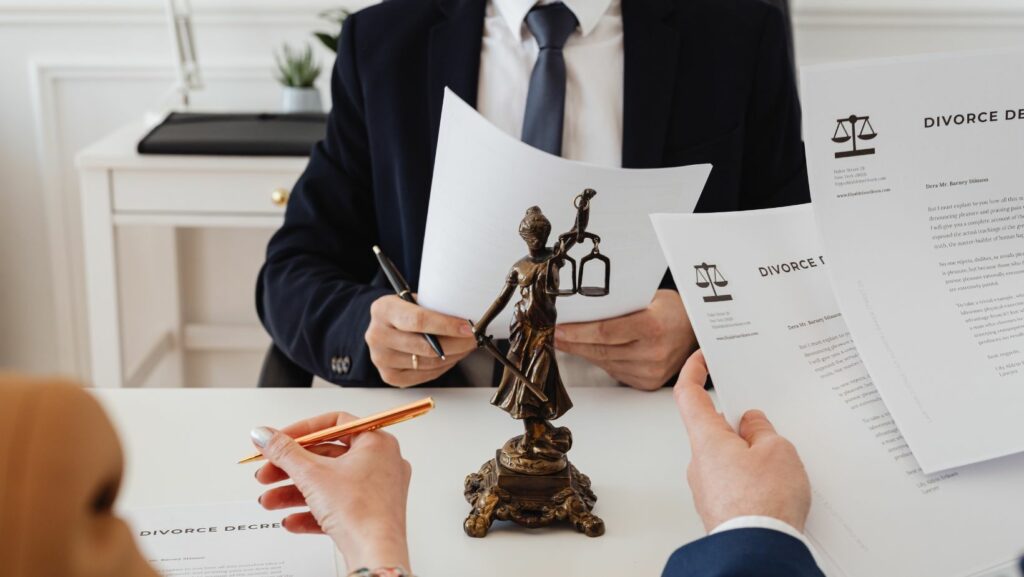Entertainment Lawyer
- Role of Entertainment Lawyers: They specialize in navigating legal complexities within the entertainment industry, focusing on contract negotiation, intellectual property management, and rights protection.
- Essential Skills: Key attributes include strong negotiation abilities, comprehensive legal knowledge, effective communication, meticulous attention to detail, and valuable networking skills.

- Services Offered: From drafting contracts and managing copyrights to providing litigation support, entertainment lawyers offer crucial services that help safeguard the interests of artists and companies.
- Importance of Protection: They play a vital role in protecting creative works, preventing unauthorized use, and facilitating business deals to ensure favorable terms for clients.
- Choosing the Right Lawyer: Consider qualifications, specialized experience, client testimonials, negotiation skills, industry connections, and fee structures to ensure a good fit.
- Asking the Right Questions: Inquire about their experience, negotiation strategies, transparency on fees, availability, and success rates in dispute resolution to gauge their capability.
In the vibrant world of entertainment, where creativity meets commerce, the role of an entertainment lawyer becomes crucial. These legal experts navigate the complexities of contracts, intellectual property, and rights management, ensuring that artists, producers, and companies protect their creative endeavors. As the industry evolves with new platforms and technologies, the demand for specialized legal guidance has never been higher.
Entertainment lawyers not only safeguard their clients’ interests but also help them seize opportunities in an ever-changing landscape. From negotiating deals to resolving disputes, they play a vital role in shaping careers and projects. Understanding the nuances of this field can empower aspiring artists and industry professionals alike, making it essential to explore what an entertainment lawyer truly does and how they can be a game-changer in the pursuit of success.
What Is An Entertainment Lawyer?
An entertainment lawyer specializes in legal matters within the entertainment industry. Their role encompasses various functions, including contract negotiation, intellectual property protection, and rights management.
Definition and Role
An entertainment lawyer provides legal representation for clients in different sectors like film, music, television, and theater. They draft and review contracts, ensuring that clients’ rights are safeguarded while mitigating risks in agreements with producers, studios, agents, and distributors. In addition to contract work, they manage intellectual property by registering trademarks, copyrights, and patents, helping clients protect their creative works. They also offer counsel on compliance with industry regulations, dispute resolution, and licensing issues.
- Negotiation Skills: Strong negotiation skills facilitate favorable contract terms for clients.
- Legal Knowledge: Comprehensive understanding of entertainment law, including copyright and contract law, ensures effective representation.
- Communication Skills: Clear communication helps in conveying legal concepts to non-lawyers and enables effective interaction with clients.
- Attention to Detail: Meticulous attention to detail allows for thorough contract reviews, minimizing risks and liabilities.
- Networking Abilities: Building relationships within the industry enhances opportunities for clients and strengthens legal strategy.
Types Of Services Provided
Entertainment lawyers offer a variety of essential services to help clients navigate the complexities of the entertainment industry. Their expertise covers crucial areas including contract negotiation, copyright and intellectual property rights, and litigation and dispute resolution.
Contract Negotiation
Entertainment lawyers excel in contract negotiation, ensuring that agreements reflect the best interests of their clients. They possess the skills to draft comprehensive contracts for various purposes, such as talent agreements, licensing deals, and production contracts. By analyzing terms, addressing potential risks, and advocating for favorable conditions, they enhance their clients’ bargaining positions. Examples of negotiated contracts include those for film distribution, music recordings, and television production.
Copyright and Intellectual Property Rights
Entertainment lawyers focus on copyright and intellectual property rights management. They guide clients through the registration process for copyrights, trademarks, and patents, providing vital protection for creative works. Moreover, they assist in monitoring and enforcing these rights against unauthorized use, minimizing the risk of infringement. Examples of intellectual property services include securing rights for music compositions and film scripts, as well as addressing potential copyright violations in digital media.
Litigation and Dispute Resolution
Entertainment lawyers provide litigation and dispute resolution services to protect their clients’ interests in conflicts. They represent clients in legal disputes that may arise from contract violations, intellectual property infringement, or employment matters. Their expertise allows clients to pursue settlements or litigate cases effectively in court. Examples of litigation scenarios include disputes over royalty payments or breaches of exclusivity agreements.
Importance In The Entertainment Industry
Entertainment lawyers play a vital role in safeguarding the interests of creative professionals and organizations within the entertainment industry. Their expertise is integral to addressing the unique legal challenges that arise in various sectors.
Protecting Creative Works
Entertainment lawyers actively protect the intellectual property of artists and creators. They manage copyright registrations, ensuring that original works, such as music tracks, scripts, and visual arts, receive necessary legal protection. By enforcing these rights, lawyers prevent unauthorized use and piracy, which could potentially harm their clients’ financial interests and reputations. Through meticulous attention to detail, these legal professionals navigate complex copyright regulations and establish robust agreements that uphold their clients’ creative control.
Facilitating Business Deals
 Entertainment lawyers facilitate business deals that are crucial for artists and companies to thrive. They negotiate contracts, ensuring terms are favorable and equitable for all parties involved. By understanding industry standards and trends, lawyers provide insights that help clients make informed decisions. These professionals draft talent agreements, licensing deals, and production contracts with precision, mitigating risks associated with business partnerships. Their ability to communicate effectively and advocate passionately for their clients often results in successful transactions and strengthened relationships within the industry.
Entertainment lawyers facilitate business deals that are crucial for artists and companies to thrive. They negotiate contracts, ensuring terms are favorable and equitable for all parties involved. By understanding industry standards and trends, lawyers provide insights that help clients make informed decisions. These professionals draft talent agreements, licensing deals, and production contracts with precision, mitigating risks associated with business partnerships. Their ability to communicate effectively and advocate passionately for their clients often results in successful transactions and strengthened relationships within the industry.
How To Choose The Right Entertainment Lawyer
Selecting the right entertainment lawyer involves evaluating their expertise and determining their fit for specific legal needs. Key factors include qualifications, experience, and personal rapport.
Considerations and Qualifications
- Specialized Experience: Look for an entertainment lawyer with demonstrated experience in relevant sectors like film or music. This specialization ensures familiarity with industry standards and practices.
- Educational Background: Verify the lawyer’s educational credentials. An attorney licensed to practice law with a focus on entertainment law greatly enhances credibility.
- Client Testimonials: Examine reviews or testimonials from previous clients. Positive feedback from similar cases illustrates effectiveness and client satisfaction.
- Negotiation Skills: Prioritize lawyers with proven negotiation skills. Effective negotiators can secure better contract terms and protect client interests.
- Industry Connections: Assess the lawyer’s network within the entertainment industry. Strong connections can facilitate advantageous business deals and collaborations.
- Fees and Payment Structure: Understand the fee structure upfront. Clarity about hourly rates or flat fees prevents misunderstandings later.
- What Is Your Experience in Entertainment Law?: Understand their specific areas of expertise and past successes.
- How Do You Approach Contract Negotiation?: Inquire about their negotiation strategies and how they ensure favorable outcomes for clients.
- What Are Your Fee Structures?: Request details on billing methods to ensure transparency regarding costs.
- Can You Provide References?: Ask for references from past clients to gauge their satisfaction and results.
- What Is Your Availability?: Determine their availability for communication and support throughout the legal process.
- How Do You Stay Updated on Industry Changes?: Assess their commitment to ongoing education and awareness of industry developments.
- What Is Your Success Rate in Dispute Resolution?: Inquire about their track record of resolving disputes efficiently and effectively.
Complexities of the Entertainment
Navigating the complexities of the entertainment industry requires the expertise of an entertainment lawyer. These professionals not only protect the rights of artists and creators but also facilitate opportunities that can lead to success. By understanding the vital role they play in contract negotiation and intellectual property management, individuals in the industry can make informed decisions about their legal representation. Choosing the right entertainment lawyer is crucial for ensuring that one’s interests are safeguarded in a rapidly evolving landscape. With the right support, clients can focus on their creative pursuits while having confidence that their legal needs are being expertly managed.



